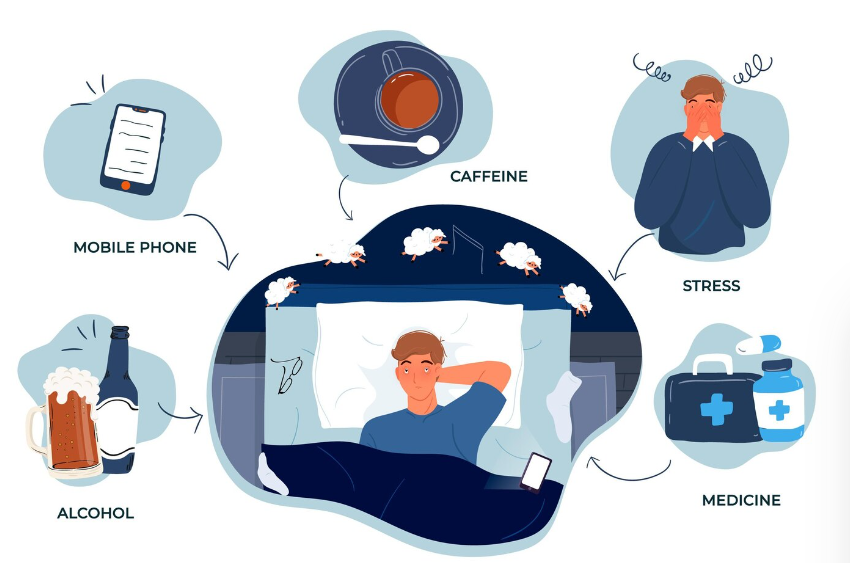
The Role of Hormones in Common Risk Factors for Insomnia
Understanding Insomnia and Its Hormonal Connections
Introduction:
Insomnia is the inability to fall asleep or stay asleep. It can be influenced by various factors, including hormonal imbalances. Therefore, understanding these risk factors is crucial for managing insomnia effectively. Let’s explore the common risk factors for insomnia and their hormonal connections in simple terms.
Identifying Common Risk Factors for Insomnia
1. Stress and Anxiety
Description:
Stressful life events, work pressures, or relationship issues can significantly impact sleep. Moreover, these factors often lead to heightened emotional responses.
Hormonal Connection:
Consequently, these stressors often lead to elevated levels of stress hormones, such as cortisol. As a result, these high cortisol levels can disrupt your sleep patterns.
2. Hormonal Changes
Description:
Fluctuations in hormone levels are common in certain life stages. For example, many women experience hormonal shifts during their menstrual cycles.
Hormonal Connection:
Specifically, hormonal changes due to pregnancy and menopause can affect sleep quality. This disruption can lead to insomnia, particularly in women.
3. Medical Conditions
Description:
In addition to lifestyle factors, some medical conditions can also cause hormonal imbalances.
Hormonal Connection:
For instance, thyroid disorders, diabetes, and sleep apnea may contribute to insomnia. Hormones affected by these conditions can interfere with your ability to sleep well.
4. Medications
Description:
Moreover, certain medications can also impact sleep.
Hormonal Connection:
For instance, antidepressants, asthma medications, and stimulants can interfere with hormone levels. Consequently, they may disrupt your sleep-wake cycle.
5. Poor Sleep Habits
Description:
Habits surrounding sleep can significantly influence its quality. For example, inconsistent sleep schedules can wreak havoc on your body’s natural rhythms.
Hormonal Connection:
In particular, irregular sleep schedules, excessive caffeine or alcohol consumption, and using electronic devices before bedtime can disrupt hormone production. This, in turn, negatively impacts your sleep quality.
Understanding the Hormonal Connection
Hormones play a crucial role in regulating the sleep-wake cycle. Indeed, imbalances in hormones like cortisol, melatonin, and adrenaline can disrupt this cycle. As a result, you may experience difficulty falling asleep or staying asleep.
Managing Insomnia
To manage insomnia effectively, it’s important to address the underlying risk factors. Additionally, adopting healthy sleep habits can help regulate hormone levels and improve sleep quality. Here are some strategies to consider:
- Stress Management Techniques: For example, practice relaxation exercises, such as deep breathing or meditation.
- Consistent Sleep Schedule: Go to bed and wake up at the same time each day to help your body establish a routine.
- Avoid Stimulants Before Bedtime: Limit caffeine and alcohol intake, especially in the evening, as they can interfere with your ability to fall asleep.
- Seek Professional Help: If insomnia persists, consider talking to a healthcare provider for additional guidance.
Conclusion
By understanding the role of hormones in the common risk factors for insomnia, you can take proactive steps to manage this sleep disorder effectively. Identifying and addressing hormonal imbalances, along with adopting healthy sleep habits, is key to improving sleep quality and overall well-being.
To seek medical advice, always consult a Doctor. Here are our recommended experts. Click Here
To read more on Insomnia. Click Here


